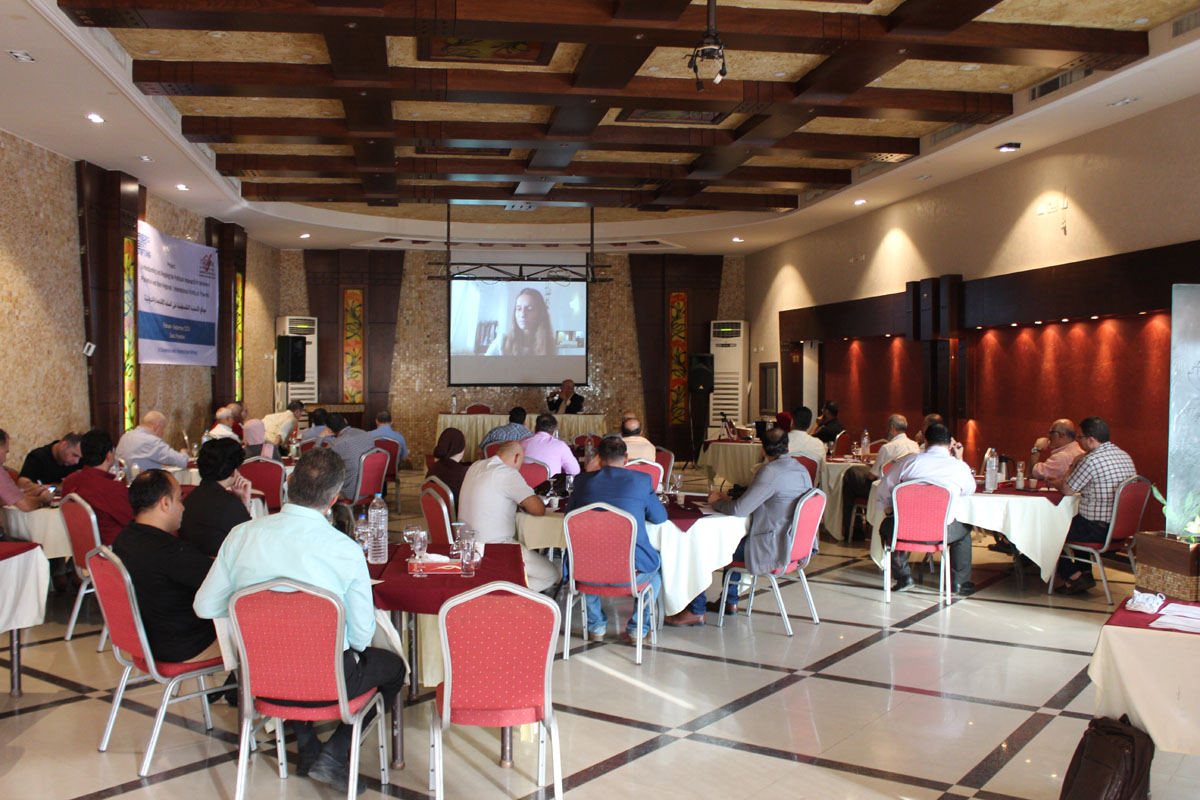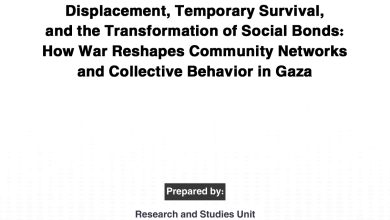The EU’s position toward the Israeli annexation plan

Pal-Think for Strategic Studies in partnership with Friedrich Ebert Stiftung, organized a dialogue session entitled: The EU’s position toward the Israeli annexation, via Zoom, on Monday, June 29th, 2020, and hosted the International Relations Manager at Gisha and expert on European Foreign Policy, Dr. Beth Oppenheim. Among attendees were intellectuals, journalists, scholars, civil society representatives, and members of political parties.
Mr. Omar Shaban, director of Pal-Think, opened the session by welcoming Dr. Oppenheim and the distinguished guests: “Pal-Think for Strategic Studies continues its role in discussing the political issues that concern the Palestinian matter nowadays.” Then Shaban opened the discussion asking “Can we count on Europe? Do all Europeans agree on their position on annexation?”
Dr. Oppenheim has voiced her pessimism about the European reaction and explained that in order for the European Union to take action, it is required to reach consensus of all member states. While it is much easier for the EU to make decisions about its internal matters, it becomes more difficult in the case of external and foreign policy matters. More specifically when it comes to the Israeli-Palestinian issue. She clarified the many reasons behind that including Britain’s exist from the EU has enabled the small states within the EU, that enjoy strong economic relations or other interests with Israel to abstain from taking decisions against Israel, and this has made the EU less able to make external decisions.
She added that: “The Holocaust is also one of the reasons that weakened the ability of the EU to take a stand against Israel”. Furthermore, she continued by saying that: “There are many blocs inside the EU, each one has different point of view regarding the annexation, as some of them agree on the annexation plan, while others do not, and therefore, it is impossible to reach a unanimous decision regarding the annexation plan. When Russia annexed Crimea in 2014, sanctions were imposed against Russia, so will there be any sanctions that will be imposed on Israel for the annexation?
She added that: There are no expectations of the Israeli decision, and it is hard to know what is on Netanyahu’s mind, whether it would be complete or partial annexation, or will he abandon the annexation plans at once?
Answering a question on what can and should the EU do about annexation, Oppenheim said that despite the fact that EU may not be able to take serious actions against Israel, the EU might stand with the Palestinians through increasing support for the Palestinians by pushing political reconciliation and financing the Palestinian Authority.
Oppenheim continued that: Israel must take responsibility for its actions, as the annexation will make Israel lose relations with the EU, in which there will be individual measures from the states within the EU in order to stop their economic or security relations with Israel, such as: ending the free trade and association agreements between Europe and Israel, and enforce a policy of differentiation towards the Israeli settlements in an attempt to raise their maintenance cost to Israel, as well as ending the Horizon 2020 project with Israeli companies and universities, which allowed them to fund research in Israel and its settlements.
“It is the right time for the EU to take a decisive position and not to leave Israel without accountability in case of annexation.”































